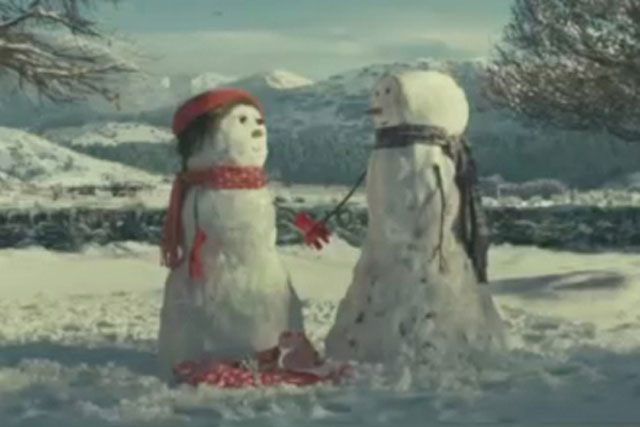
It’s over four years since the cold winds of financial crisis first started blowing, bringing with them the bleak midwinter of recession.
Back in October 2009, Ipsos ASI took a gauge of public opinion around Christmas and its associated commerciality. Consumer confidence had hit a low point that year, and this was reflected by a relatively austere attitude to the forthcoming festive season.
A majority of UK adults that year agreed that there was a need to tone down Christmas ads because of the economic climate. Meanwhile, only 23% agreed that they would be spending more on presents compared to the previous year.
The following year, consumer confidence had seen something of a rebound. Correspondingly, in October 2010 the proportion agreeing that Christmas ads should be toned down dropped from 59% to 45%, whilst the proportion agreeing that they’d be spending more on presents this year jumped to 29.
Fast forward to 2012 - the recession has had its double dip, and consumer confidence dropped even lower than it did in 2009. However, our attitudes towards Christmas advertising have been more resilient - the proportion agreeing that ads should be toned down, and the proportion thinking they’ll spend more on presents this year, not changing significantly since 2010.
So is the advertising becoming part of the build-up to the big day, an enhancement to the sense of anticipation? Viewed in general, it’s not necessarily being perceived as getting better - at 28%, the proportion agreeing that "I love Christmas ads" is very close to 2009, and is dwarfed by agreement that "Christmas advertising starts too early" (76%) and "there’s just too much Christmas advertising" (61%).

Just as the turn-on dates for the Christmas lights get earlier every year, so the launch of those blockbuster ads gets earlier too - surely Halloween week is too early for snow scenes and elves?
However, if we look at the nature of Christmas advertising we can observe some subtle trends. Back in 2008 one of the great success stories of the season was Morrisons - Richard Hammond riding the wave of a celebrity-led campaign which had, for a while at least, successfully encouraged reappraisal of the brand. Where are the celebrities this year?
Tesco, who in the past have featured such luminaries as the Spice Girls and Amanda Holden, have eschewed celebrity so far - preferring an ordinary shopper finding a singing Furby on which to spend her Clubcard vouchers.
Likewise, a now Jamie-less Sainsbury’s are basing their campaign around vignettes of ordinary family life - such as the boy clearing away the dishes as part of his drive to be good for Santa.
Asda does something similar, but focuses on Mum getting everything done whilst useless hubby does nothing (thereby managing to elicit complaints of sexism from both women and men). As for Morrisons - well, it’s Mum getting everything done again, with no apparent involvement from the Hamster, Freddy Flintoff or anyone else.
The trend seems to be away from glitz and glamour, and towards reassuring and heart-warming vignettes of family life. The ne plus ultra of this trend in retail ads is of course John Lewis. Yes, the production values are ultra-high - perhaps ironically so given the defiantly non-flashy tone of the ad coming from its sister retailer, Waitrose - and the launch of its Christmas campaign has become something of a media event in its own right.
However, let’s not forget that this comes on the back of the classic 2011 ad which presented … heart-warming vignettes depicting scenes from a recognisably "ordinary" family. Cynics would no doubt say that the trend away from glamour amongst the supermarket ads is driven more by desire to "do a John Lewis" more than any kind of sensitivity to economic conditions.
John Lewis themselves, of course, have moved on from real people to snowpeople. How we relate to the struggle of our hero, though the woods, across the mountains, and down the busy roads.
Hang on though… hasn’t he heard of the internet? Three fifths of adults under 65 plan to do at least some of their shopping online this year. Perhaps Snowlady should get her beau a tablet or a smartphone.

